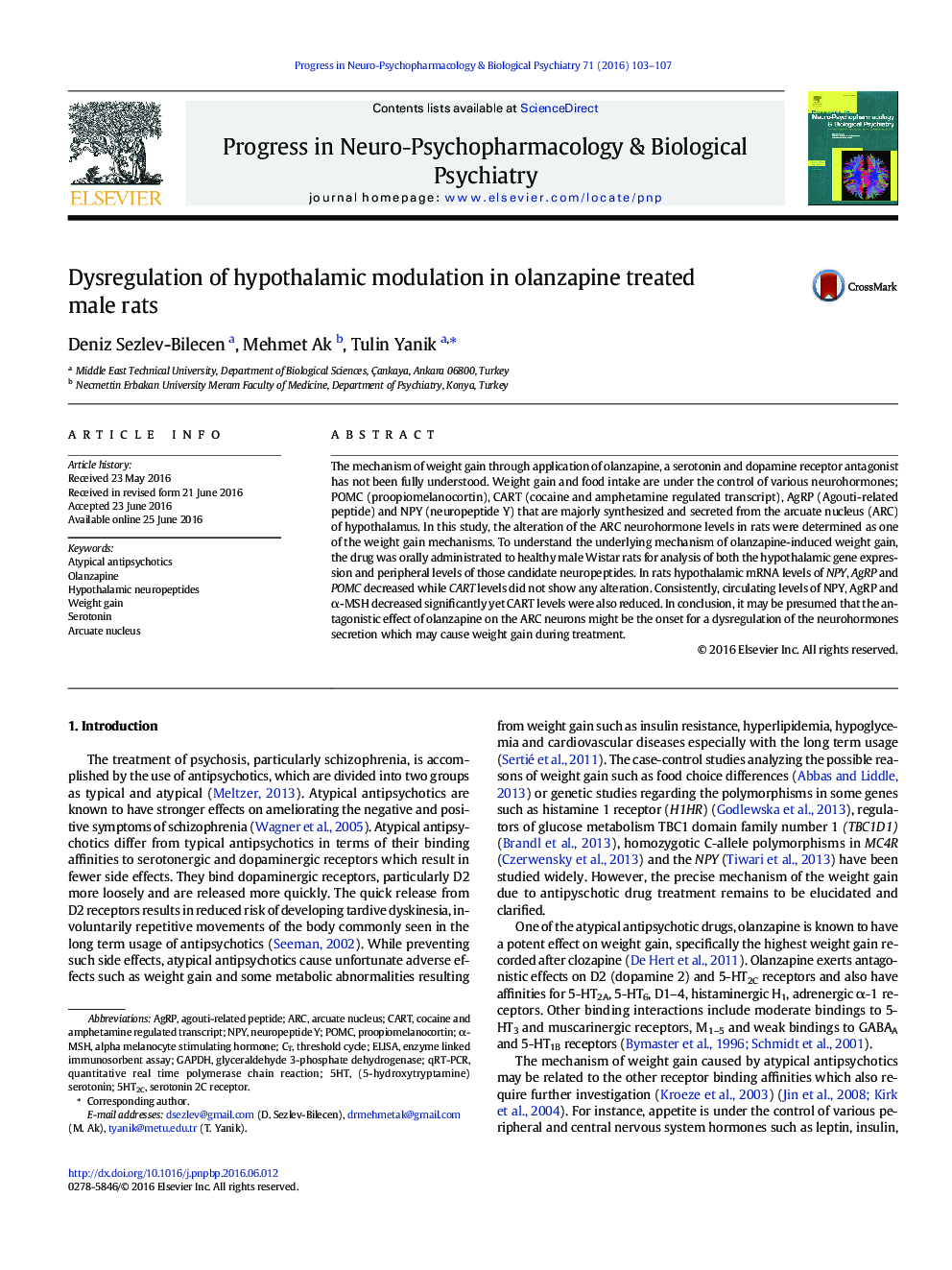| Article ID | Journal | Published Year | Pages | File Type |
|---|---|---|---|---|
| 2564637 | Progress in Neuro-Psychopharmacology and Biological Psychiatry | 2016 | 5 Pages |
•Olanzapine increased food intake and changed weight gain in rats.•Appetite related hypothalamic neurohormones expressions observed.•Dysregulation of hypothalamic modulation may be caused by olanzapine antagonism.
The mechanism of weight gain through application of olanzapine, a serotonin and dopamine receptor antagonist has not been fully understood. Weight gain and food intake are under the control of various neurohormones; POMC (proopiomelanocortin), CART (cocaine and amphetamine regulated transcript), AgRP (Agouti-related peptide) and NPY (neuropeptide Y) that are majorly synthesized and secreted from the arcuate nucleus (ARC) of hypothalamus. In this study, the alteration of the ARC neurohormone levels in rats were determined as one of the weight gain mechanisms. To understand the underlying mechanism of olanzapine-induced weight gain, the drug was orally administrated to healthy male Wistar rats for analysis of both the hypothalamic gene expression and peripheral levels of those candidate neuropeptides. In rats hypothalamic mRNA levels of NPY, AgRP and POMC decreased while CART levels did not show any alteration. Consistently, circulating levels of NPY, AgRP and α-MSH decreased significantly yet CART levels were also reduced. In conclusion, it may be presumed that the antagonistic effect of olanzapine on the ARC neurons might be the onset for a dysregulation of the neurohormones secretion which may cause weight gain during treatment.
